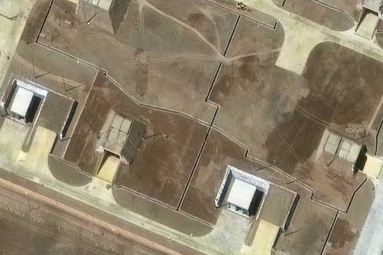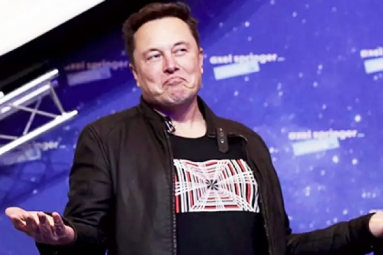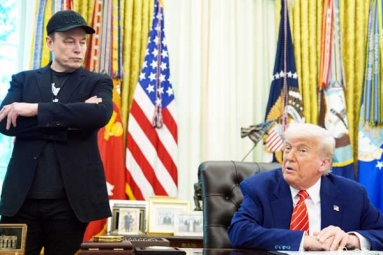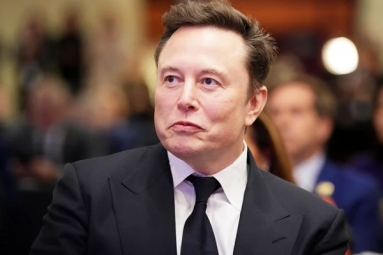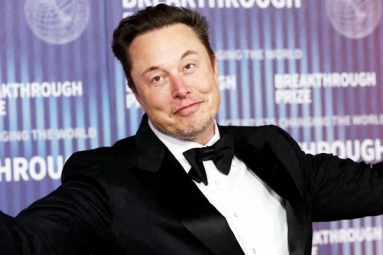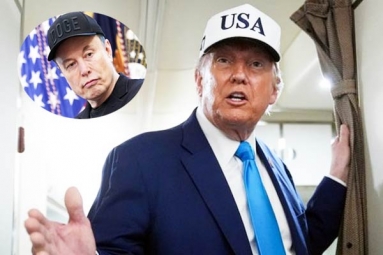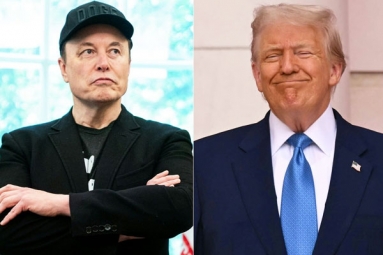
(Image source from: Thehansindia.com)
It appears that Elon Musk is excited about sharing his next significant project with India, literally speaking. SpaceX's satellite internet initiative, Starlink, has started important security examinations in the nation, which is a key step before rolling out its commercial internet services. If everything proceeds without issues and authorities work quickly, Musk might be offering fast satellite internet to Indian families by 2026. An official informed The Economic Times that Starlink has asked for 600 gigabits per second of bandwidth over India using its first satellite group, and that the frequency has been temporarily set aside for security checks. Starlink has initiated a series of security tests, which is a necessary procedure for any telecom company, whether foreign or local, wishing to enter India. These evaluations are part of the approval process by the government before a business can transmit data across the country.
As reported by Bloomberg, individuals familiar with the situation suggest that once the Telecom Regulatory Authority of India (TRAI) finalizes the pricing rules for satellite services, likely by the year’s end, Starlink could activate its services within months. In summary, the countdown to a 2026 launch has indeed started. The market for satellite broadband in India is growing rapidly, almost as quickly as a SpaceX booster coming back to Earth. With Prime Minister Narendra Modi welcoming private companies into the space market, numerous businesses are eager to address the gaps left by unreliable mobile and fiber networks, especially in rural communities. Starlink’s primary competitors include Reliance Jio’s Space Fibre and Eutelsat’s OneWeb, but Musk’s company appears to be aiming for a strong position in orbit. Sources say SpaceX intends to establish at least ten satellite gateways throughout India, which is more than triple what its rivals have planned.
If there is a key location for Starlink’s aspirations in India, it is Mumbai. SpaceX has already built three ground stations in the city, seen as the company’s local control center. Officials are reportedly getting ready for inspections on-site soon. Media reports indicate that the rollout of infrastructure is progressing well. Once the approval is granted, Starlink might start transmitting signals across the subcontinent within a few months. Unlike its competitors, which are targeting business and government clients, Starlink aims directly at individual consumers. The company wants to reach India’s large number of households with limited internet access, especially in rural areas where stable internet is still a luxury. “Starlink’s network of low-orbit satellites could revolutionize connectivity for millions,” mentioned someone knowledgeable about SpaceX's strategies. Insiders also reveal that Musk’s team is counting on the strength of the brand and his fame in the tech industry to attract wealthy, tech-savvy city residents who are willing to pay more for reliable, high-speed internet.
If it succeeds, SpaceX would gain an entry point into one of the biggest internet markets worldwide and compensate for its lack of presence in China, where foreign telecom companies are not allowed. The launch of Starlink in India would mark Elon Musk's second significant action in the nation, after Tesla started operations there with its first showrooms earlier this year. The billionaire also met with Prime Minister Modi during that trip, showing he wants to establish India as an important market for both his automotive and space businesses. Telecom minister Jyotiraditya Scindia recently emphasized that India wants to offer its people various communication methods, including “land-based, fiber, and satellite” options, which invites global companies like SpaceX.
If everything goes smoothly and the red tape doesn't delay the process, Starlink may become operational in India by early 2026, bringing Musk’s vision of worldwide satellite internet closer to becoming a reality. And this time, the signal will not only be powerful but also exceptional.






